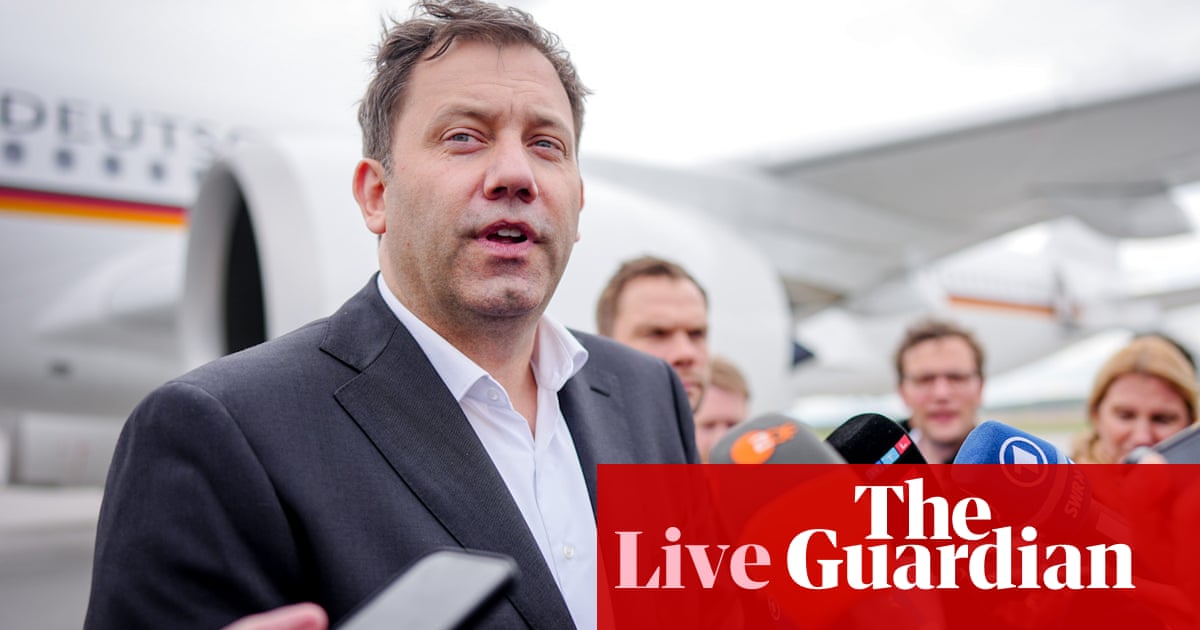The article outlines the discussions among G7 finance ministers in Banff, Alberta, emphasizing the urgent need to address trade disputes, particularly those resulting from Donald Trump's policies. German Finance Minister Lars Klingbeil's remarks highlight the broader context of economic stability, job security, and international solidarity with Ukraine amidst ongoing geopolitical tensions.
Economic Concerns and Trade Disputes
Klingbeil’s call for a swift resolution to trade disputes with the United States underscores the economic ramifications these disagreements have on global markets. By framing the tariffs as a burden, the article aims to convey a sense of urgency and the necessity for collaborative solutions among the G7 nations. This perspective could be seen as an effort to unify the G7 against a common challenge, promoting stability in international trade.
Support for Ukraine
The presence of Ukraine's finance minister at the G7 meeting signifies the ongoing commitment of Western nations to support Ukraine against Russian aggression. By emphasizing solidarity with Ukraine, the article reinforces the moral imperative for the G7 to act decisively against Russian actions. This narrative serves to rally public support for continued sanctions and assistance, framing the conflict as a struggle for democratic values.
Global Sanctions and Broader Implications
The reference to Europe intensifying sanctions against Russia indicates a strategic approach to apply economic pressure on Moscow. This reveals an interconnectedness of economic policy and geopolitical strategy, suggesting that the G7 is not just addressing immediate trade issues but also the larger implications of these policies on global security. The Vatican’s involvement in peace negotiations further highlights a multi-faceted approach to resolving the Ukraine crisis, involving not just political leaders but also influential non-state actors.
Perception and Public Sentiment
The article seems designed to create a sense of urgency among the public regarding the need for economic stability and international cooperation. By focusing on the potential negative impacts of trade wars on job security, it aims to resonate with voters who may feel the direct effects of such policies. The tone suggests a proactive stance, encouraging citizens to support their governments in seeking resolutions to these conflicts.
Potential Manipulative Aspects
While the article presents factual information, the framing of the issues could be seen as a form of manipulation. By emphasizing the dire consequences of tariffs and the moral obligation to support Ukraine, it may lead readers to adopt a particular viewpoint without considering alternative perspectives. The language used is carefully chosen to evoke a sense of urgency and moral duty, potentially limiting critical analysis of the situation.
Reliability of the Information
The information appears credible, as it comes from a significant international meeting involving high-level officials. However, the interpretation and emphasis placed on certain aspects could reflect a bias toward a specific narrative. Readers should be aware of this bias while evaluating the overall reliability of the reporting.
Impact on Global Markets
The discussions highlighted in the article could have implications for global markets, particularly if trade disputes escalate or if sanctions against Russia intensify. Investors may react to news regarding tariff resolutions or the ongoing conflict in Ukraine, impacting stock prices and economic forecasts in sectors sensitive to these issues.
The article presents a complex interplay of economic, political, and social factors, aiming to foster a particular narrative about the importance of unity and swift action within the G7. The overall tone and content suggest an intention to rally public support for international cooperation against both economic challenges and geopolitical threats.
